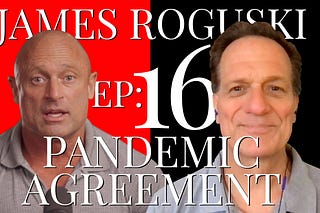
Libertarian, Go To Church This Christmas
But where were you last Sunday morning?
It is the festive season. You are annoyed every time someone wishes you “happy holidays” instead of “Merry Christmas”. You are a libertarian who wants to save Christendom, but where were you last Sunday morning?
Personal salvation aside, there are a number of compelling reasons for spending your Sunday mornings in the pews. I suggest there are two broad reasons. First, a church not supported by its local community will disappear – and that’s a bad thing. And second, Christian teachings are a wonderful complement to libertarian ethics.
If a local community does not support its local church, it will disappear because without attendance, volunteerism, and financial contributions, it will lack the necessary resources to operate.
That’s a bad thing for libertarians.
These local institutions often embody principles fundamental to libertarian thought. Local churches are more than just places of worship; they are community hubs where individuals come together voluntarily, a core tenet of libertarianism. They foster a sense of community and interconnectedness, offering a means of social engagement, moral discourse, and mutual support, all without reliance on government intervention.
The synergy between Christian teachings and libertarian ethics presents a compelling framework for individuals wanting to commit to personal freedom, ethical integrity, and community engagement.
Moreover, churches traditionally play a significant role in providing social services, education, and charity, operating independently of the state (think of all those schools and hospitals called “Saint Paul’s” etc). This aligns with the libertarian preference for private, community-based solutions over government-run programs. The disappearance of local churches has a compounding effect that means a reduction in the number of non-governmental avenues available for community support and social welfare, increasing reliance on the state.
Furthermore, churches often serve as bastions of moral and ethical teachings. These complement and reinforce libertarian principles of personal responsibility and ethical conduct. A moral framework that helps guide individual and community behaviour, essential in a society where libertarian principles prioritise individual decision-making and self-governance.
So, the disappearance of local churches means a loss of important community structures that support libertarian values of voluntary association, community-driven welfare, and moral guidance, making it a concerning development for those who advocate for a society built on these principles.
Take a moment to ask yourself – where does the rubber really hit the road in a libertarian society? We mythologise the empowering of community groups and volunteerism in order to disempower the state – but what do you think this looks like? An individual accountable only to their families and God is the epitome of personal responsibility.
Christian teachings are a wonderful complement to libertarian ethics.
How then do Christian teachings complement libertarian ethics? By reflecting a harmonious blend of spiritual beliefs and political philosophy. At the core of both systems is a strong emphasis on individual liberty and personal responsibility. Christian doctrine champions free will, advocating that individuals are morally accountable for their choices, a notion that resonates deeply with libertarian values. Additionally, the concept of stewardship in Christianity, which calls for responsible management of resources and care for the world, parallels the libertarian emphasis on self-sufficiency and personal responsibility.
In terms of ethical conduct the Christian Golden Rule, which advises treating others as one would wish to be treated, aligns closely with the libertarian non-aggression principle, which advocates peaceful and voluntary interactions among individuals. Both philosophies encourage charity and voluntary aid, preferring acts of compassion and generosity over compulsory state-led welfare. This common ground highlights a shared belief in the power of individual and community action in addressing social needs.
Moreover, Christian teachings about peace, non-violence, and the significance of smaller, community-based decision-making resonate with libertarian views on limited governance and opposition to unnecessary wars. The respect for moral autonomy and the individual conscience is a crucial intersection of these belief systems. It underscores the importance of making ethical decisions based on personal convictions, free from external coercion. The synergy between Christian teachings and libertarian ethics presents a compelling framework for individuals wanting to commit to personal freedom, ethical integrity, and community engagement.
So quit complaining and save your local church. But find a “traditional service” that preaches the Gospel and not progressive talking points. Make the effort and do your homework. Start with a Christmas service. It will be the most impactful thing you can do to save Christendom and the libertarian values it enshrines. And you may even save your soul.
The post Libertarian, Go To Church This Christmas appeared first on Liberty Itch.










